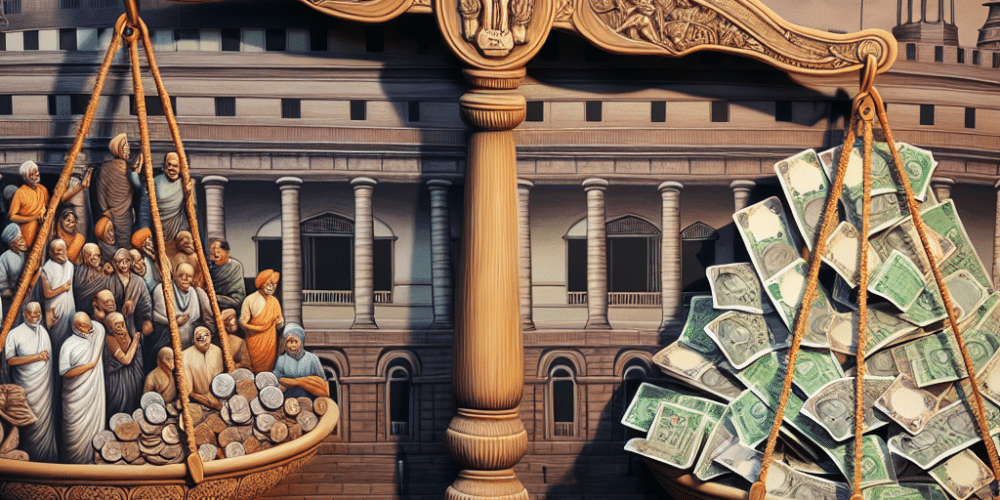On October 1, 2025, India implemented a law prohibiting real-money gambling, sparking intense discussion over its economic and social implications. This decision is positioned by the authorities as a necessary step to protect citizens from gambling-related harms such as addiction, fraud, and money laundering. However, the economic ramifications are significant, with potential losses ranging from reduced investments in the sports sector to the expansion of the underground gambling market.
The new law has disrupted the sports economy, particularly affecting cricket, a sport deeply intertwined with private investment. Before the ban, around 400 real-money gaming companies operated in India, contributing nearly $2.3 billion in taxes annually and supporting more than 200,000 jobs. These companies, including Dream11, which had been the main sponsor of the national cricket team since July 2023, and My11Circle, a prominent partner of the Indian Premier League, have ceased operations in India. This shift marks a substantial financial blow to the sports industry, which relied heavily on sponsorships from both local and international gambling brands.
Globally, betting brands are known for investing in sports development via sponsorship deals and social programs. A case in point is 1xBet, renowned for its partnerships with sports clubs and its support of para-athletes and inclusion initiatives. Due to the current restrictions, betting companies are barred from collaborating with Indian sports organizations, leading to missed opportunities in infrastructure development, youth programs, and athlete training. For instance, while 1xBet continues to support cricket internationally, such as with the Durban Super Giants and the European Cricket Network, similar investments in India are now curtailed.
Analyses by SCCG Management suggest that legalizing betting could yield substantial financial benefits for India, potentially injecting billions into government coffers through taxes and creating numerous jobs. Researchers from IJFMR project that legalizing the industry could boost India’s GDP by 0.4–0.6 percent within three years under a regulated framework. However, the current 28 percent GST on player deposits is seen as prohibitive, as it contrasts sharply with global practices where only gross gaming revenue is typically taxed. This high taxation and lack of regulatory clarity drive businesses to operate underground or via offshore sites, depriving the government of tax revenues and oversight of financial transactions.
Adopting a controlled legalization approach with moderate taxes, akin to models in the UK or the Philippines, could harmonize governmental interests with market viability. A balanced system could facilitate a thriving legal market while ensuring consumer protection and responsible gambling practices.
The key challenge for India is the absence of robust government institutions to regulate the gambling market and foster social programs. Regulation transcends mere tax collection; it encompasses measures to prevent addiction, support affected individuals, and promote educational initiatives. In more developed jurisdictions, bodies like the UK Gambling Commission not only issue licenses but also underpin support and research programs.
India’s regulatory framework needs a dedicated commission to issue licenses, audit operations, monitor transactions, and fund psychological support services. Such a body would be instrumental in establishing a well-regulated market that safeguards public interests.
Meanwhile, the ban’s economic implications and market effects present significant risks. Legal challenges against the ban are already cropping up in courts, and major investors are hesitantly pausing projects due to legal uncertainties. The prohibition merely shifts gambling activities offshore, leaving Indian players to engage with international platforms that operate outside national jurisdiction, pay no taxes, and offer little in terms of player protection. This scenario could lead to a brain drain, with top talent in game development and analysis seeking opportunities in more permissive environments.
In the long run, this could translate into substantial economic losses for India. Rather than cultivating a thriving tech sector, the country risks nurturing an illegal market that offers no employment, generates no tax revenue, and remains beyond state control.
The current ban on betting in India represents an administrative solution to a social problem, but economically, it could be a strategic misstep. The loss of investments in sports, technology, and startups diminishes the prospects of establishing a controlled, transparent, and socially responsible gambling market.
For India, regulation rather than prohibition could be the key to aligning economic and social goals. By creating a legal licensing system for gambling operators and fostering a regulated market, India could attract investments from global companies such as 1xBet. These investments could then be channeled into sports infrastructure, educational initiatives, training centers, and addiction prevention programs. Such an approach not only augments tax revenues but also establishes a robust framework for India’s growing digital economy, ensuring cricket and other sports continue to contribute to national development.

Garry Sputnim is a seasoned journalist and storyteller with over a decade of experience in the trenches of global news. With a keen eye for uncovering stories that resonate, Alex has reported from over 30 countries, bringing light to untold narratives and the human faces behind the headlines. Specializing in investigative journalism, Garry has a knack for technology and social justice issues, weaving compelling narratives that bridge tech and humanity. Outside the newsroom, Garry is an avid rock climber and podcast host, exploring stories of resilience and innovation.
















